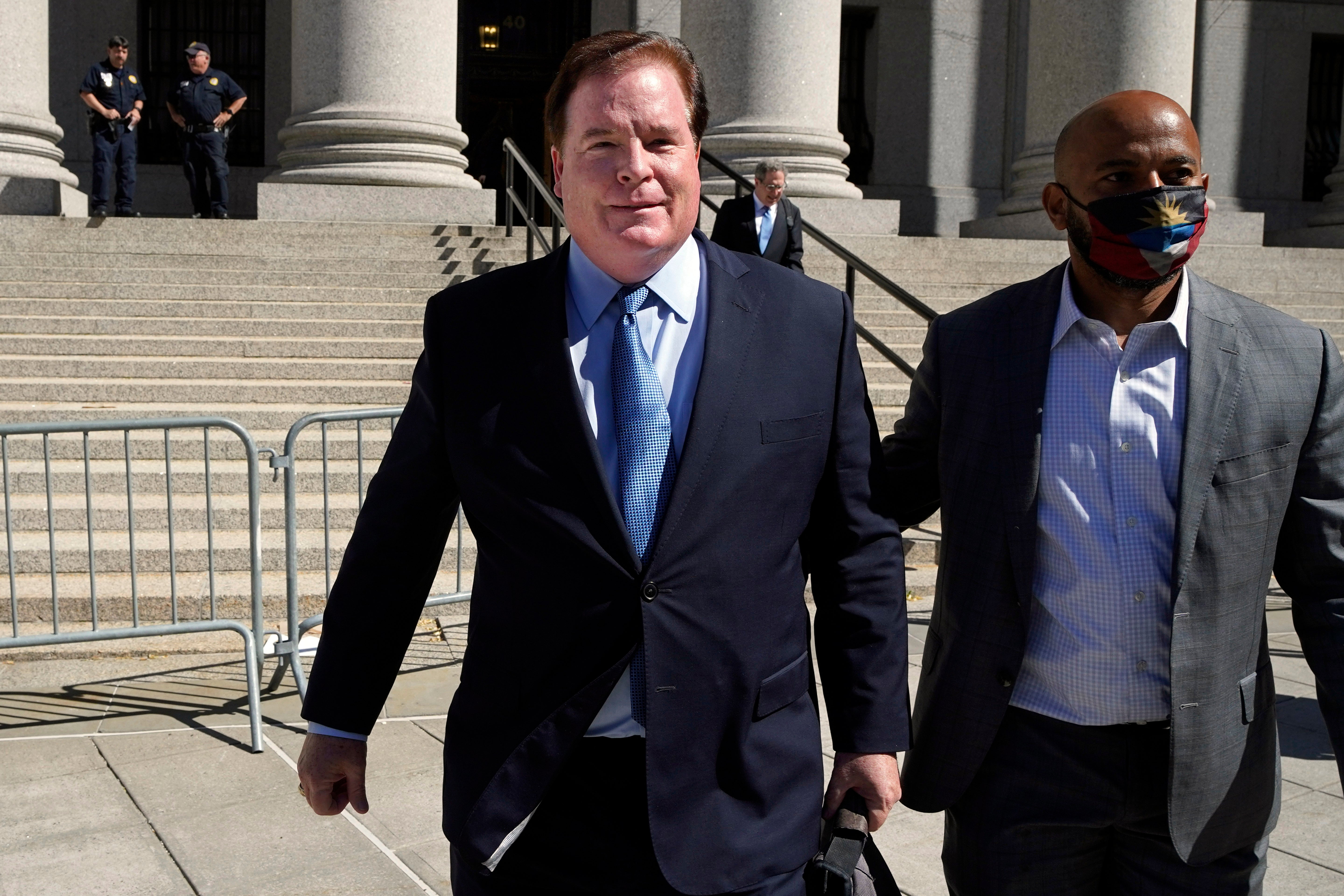Banker gets gets 1 year in prison in Manafort loan scheme
A Chicago banker has been sentenced to a year in prison for his conviction in a scheme to make $16 million in loans to Paul Manafort to gain influence in the Trump administration

Your support helps us to tell the story
From reproductive rights to climate change to Big Tech, The Independent is on the ground when the story is developing. Whether it's investigating the financials of Elon Musk's pro-Trump PAC or producing our latest documentary, 'The A Word', which shines a light on the American women fighting for reproductive rights, we know how important it is to parse out the facts from the messaging.
At such a critical moment in US history, we need reporters on the ground. Your donation allows us to keep sending journalists to speak to both sides of the story.
The Independent is trusted by Americans across the entire political spectrum. And unlike many other quality news outlets, we choose not to lock Americans out of our reporting and analysis with paywalls. We believe quality journalism should be available to everyone, paid for by those who can afford it.
Your support makes all the difference.A Chicago banker was sentenced on Monday to a year in prison for his conviction in a scheme to make $16 million in loans to Paul Manafort to gain influence in the Trump administration.
Manafort served as a campaign manager to former President Donald Trump for a key stretch from June to early August 2016.
The banker, Stephen Calk, was convicted last year on financial institution bribery and conspiracy charges in Manhattan federal court.
Before hearing the sentence, the 57-year-old Calk told the judge that the case has left his life “in shambles.”
“I sit here deeply, deeply humbled,” he said, fighting back tears. He added: “I never sought to gain fame or power.”
Defense attorney Paul Schoeman had argued for a non-prison sentence for Calk, calling him "a good and decent man who led a law-abiding life. ... It’s an aberration that he’s in this courtroom.”
The lawyer said the fact that the bank suffered no serious financial harm "makes this case unique," he added.
But prosecutors argued Calk deserved a term of up to five years. They said he “corruptly abused” his position as chairman and chief executive of The Federal Savings Bank to make $16 million in unsound loans to Manafort in exchange for Manafort’s help in securing political power.
“There’s nothing unique about the corrupting influence of power," prosecutor Paul Monteleoni said.
Judge Lorna G. Schofield told Calk she needed put him behind bars to send the message that “no one is above the law, regardless of their wealth and influence.”
She added: “You are extremely wealthy and you did not have to commit this crime.”
The judge added one day to the one-year term — a modification that could qualify him for time off his sentence for good behavior.
During a three-week trial, prosecutors said Calk played a pivotal role in getting approval for a $9.5 million real estate construction loan and another $6.5 million loan so Manafort could finish construction on a Brooklyn condominium and avoid foreclosure.
Defense lawyers argued that Calk could not have won approval for the loans without the bank’s loan committee and underwriters agreeing to the terms. And they noted that the loans were obtained at a time when Manafort was considered wealthy and successful and had not yet been criminally charged.
Prosecutors offered evidence showing Manafort helped Calk — a military veteran — get an interview for a job in the Trump administration, although he was never hired. Calk had hoped to become Secretary of the Army, but eventually interviewed for other positions because that post had already been filled, Antony Scaramucci testified at the trial.
Early in the trial, Scaramucci, who had worked on Trump’s presidential transition team, testified that he never would have enabled Calk to get the interview for the administration post if he had known that Calk was helping Manafort to get millions of dollars in loans for his real estate ventures.
Manafort lost his position in Trump’s campaign over his ties to Ukraine. Special counsel Robert Mueller’s Russia investigation led to his criminal conviction and a sentence of over seven years in prison for financial crimes related to his political consulting work in Ukraine. In December 2020, Trump pardoned him.
Calk resigned from his family-owned bank in 2019.